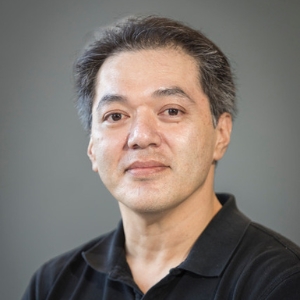
Psychological Sciences
Education and Behavioral Sciences
Post Doc - University of Denver
Post Doc - University of Colorado, Boulder
Ph.D. - University of Colorado, Boulder
M.A. - University of Colorado, Boulder
B.A. (Summa Cum Laude) - University of Colorado, Boulder
James Kole joined the faculty at the University of Northern Colorado in 2013. After completing his PhD, Dr. Kole was a post-doctoral research associate at the Center for Marital and Family Studies at the University of Denver. His research there focused on using communicative patterns to predict marital satisfaction and longevity among a sample of newly married couples. Dr. Kole was also a post-doctoral research associate at the University of Colorado, Boulder, where he focused on developing training principles to enhance the training, retention, and transfer of knowledge and skills.
Dr. Kole has co-authored 28 scientific papers, and has received grant funding from NASA to study training and retention of skills for astronauts. At UNC, he works with the undergraduate honor society Psi Chi, as well as the Curriculum Committee.
Dr. Kole regularly teaches fundamental research courses including Psychological Statistics and Design (PSY 200), Research Methods in Psychology (PSY 300), as well as Cognition (PSY 440).
The majority of Dr. Kole’s research focuses on skill acquisition and basic memory mechanisms, especially transfer, inhibition, and facilitation in fact-learning, problem-solving, and motor tasks. Although this research is basic in nature, practical application, especially with regard to educational contexts, is considered.
More recently, Dr. Kole has expanded his interests to include the evaluation of educational technologies, both in terms of efficacy and underlying psychological principles; the interaction between learning styles, pedagogical styles, and educationally relevant tasks; and cognitive mechanisms underlying stereotype formation.
In collaboration with colleagues from the University of Colorado and with funding from NASA, Dr. Kole has initiated a line of research that examines the effects of zero-gravity environments on transfer of training. In this line of research, astronauts will receive training on basic cognitive tasks on ground, and will then be tested on the same or similar tasks in space while serving on extended-duration missions to the International Space Station.
Chapman, M. J., Healy, A. F., & Kole, J. A. (2016). Memory load as a cognitive antidote to performance decrements in data entry. Memory, 24, 1182-1196. doi: 10.1080/09658211.2015.1086380
Kole, J. A., Snyder, H. R., Brojde, C. L., & Friend, A. (2015). What’s the problem? Familiarity, working memory, and transfer in a problem solving task. American Journal of Psychology, 128, 147-157. doi: 10.5406/amerjpsyc.128.2.0147
Healy, A. F., Kole, J. A., & Bourne, L. E., Jr. (2014). Training principles to advance expertise. Frontiers in Psychology. doi: 10.3389/fpsyg.2014.00131
Anderson, L. S., Healy, A. F., Kole, J. A., & Bourne, L. E., Jr. (2013). The clicker technique: Cultivating efficient teaching and successful learning. Applied Cognitive Psychology, 27, 222-234. doi: 10.1002/acp.2899
Kole, J. A., & Healy, A. F. (2013). Is retrieval mediated after repeated testing? Journal of Experimental Psychology: Learning, Memory, and Cognition, 39, 462-472. doi: 10.1037/a0028880